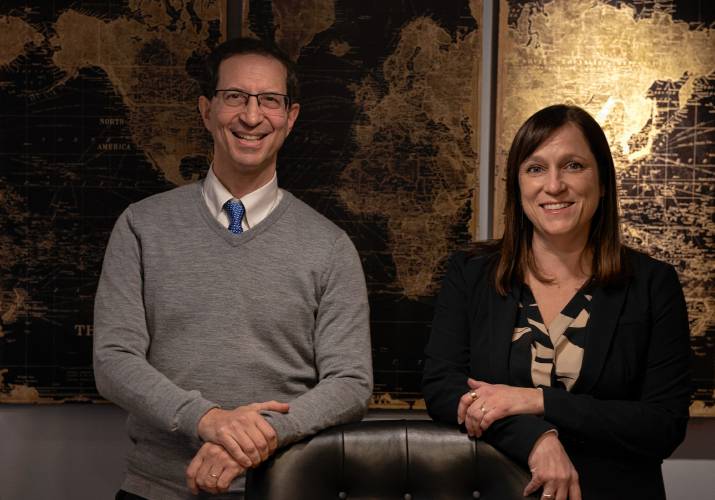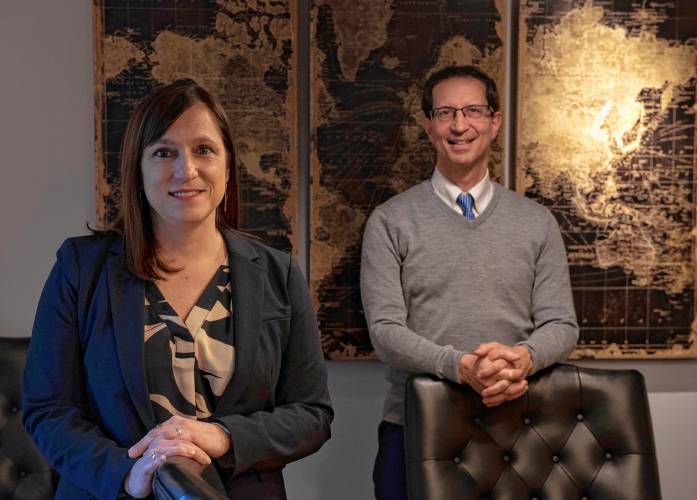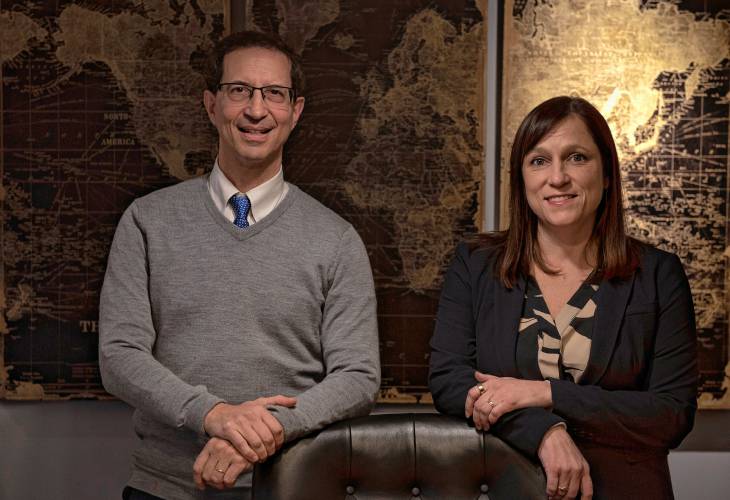A pathway to protection: Northampton lawyers creating a model clinic to provide long-term immigration options for DACA recipients
| Published: 12-07-2023 5:25 PM |
NORTHAMPTON — For many people covered under the immigration policy that offers work permits to people brought to the United States as children — known as the Deferred Action for Childhood Arrivals, or DACA — this country is the only one they know. Many DACA recipients don’t even speak the language of the nation where they were born.
And while DACA currently provides around 580,000 people with work permits, according to the U.S. Citizenship and Immigration Services, it does not provide a pathway to citizenship.
At the same time, the policy has faced legal challenges threatening its longevity.
“DACA was never intended to be a long-term solution when President Obama started it in 2012,” said Northampton-based immigration lawyer Dan Berger, who is also an immigration fellow and visiting scholar at Cornell Law School. “So what a lot of us are trying to do is figure out how we can get as many people off of DACA as possible and onto longer-term immigration status.”
Berger, alongside his law partner Megan Kludt, are in the midst of setting up a model DACA clinic at Cornell Law School, where they are using a $1.5 million grant to screen DACA individuals for their long-term immigration options and train other nonprofits and companies on how to do the same.
Their own immigration firm in Northampton — Curran, Berger & Kludt, which has pursued temporary and permanent visas for people in the Pioneer Valley since 1985 — has done screenings for “easily over a thousand DACA individuals” since the policy was implemented in 2012, according to Berger.
“These young people are such an important part of our economy and culture and they see this country as their home,” said Kludt. “They are very bright, with degrees from top universities, working in health care, engineering, and other really important fields.”
“The idea that they might just get lost in all of this and suddenly be left without status is really hard for us to take,” she said.
Article continues after...
Yesterday's Most Read Articles
In September, a federal judge in Texas ruled against the DACA program, closing it to new applicants. While current recipients are still able to renew their DACA status every two years, the Supreme Court could soon decide whether to hear the case.
“Depending on what the Supreme Court does in 2025 or who the next president is, in 2025 DACA could be at risk,” said Berger.
If DACA renewals did end, around 1,000 DACA recipients would be forced out of their jobs weekly for the next two years, according to an analysis by FWD.us, an immigration and criminal justice reform advocacy organization.
“Some folks have been living and working on this program for a really long time and haven’t really thought about where they’re headed next, or what their options are if DACA were to end,” Kludt said. “So the first step is finding all those people and finding out if there’s a path for them.”
Berger said that while there are “a lot of really amazing immigration legal aid clinics around the country,” they tend to focus more on humanitarian and family categories of immigration, with not a lot of cross-specialization.
“We’re trying to bridge that gap,” Berger said.
Using a $1.5 million grant from the Crankstart Foundation, a philanthropic organization in the San Francisco Bay Area, the Cornell clinic will focus much of its work on screening DACA individuals for their immigration possibilities.
“Some of them don’t always have a clear idea of what their immigration history is from their parents or their grandparents, and some of them don’t have any documents because they came here as children,” said Berger. “So we take a deep dive into their immigration history and their family’s immigration history as a base.”
That information is then used to try to place the individual into the most relevant and helpful immigration category for that particular person, which could be humanitarian-based immigration, family-based immigration, employment-based immigration, achievement-based, and so on.
“Immigration is a game of categories,” as Berger puts it.
From there, the clinic will be able to support people on their path to either temporary status through a visa, or permanent status through a green card.
At the same time, the clinic will train employers, companies and nonprofit organizations on how to sponsor immigration applications.
“A large company like Google or Apple … they sponsor hundreds of people all the time. But some of these nonprofits don’t really have the resources and have never been in a position to actually sponsor anybody,” Kludt said.
“Even an employer that’s familiar with sponsorship may not be familiar with sponsorship for these individuals because they’re in different positions than the ones that they normally sponsor.”
Using the grant, the clinic will provide free legal services to nonprofits ranging from public school districts and community health centers to social justice nonprofits and more.
“We don’t want money to be the barrier,” Berger said. “Many nonprofits may want to help, but they may not have a budget for it.”
In the long term, Berger said the team hopes to create templates and models and then scale up to reach even more people.
“We want to help as many people move onto green cards and working visas as possible, so that if something bad happens to DACA in the next couple of years, then they’re protected and there’s already something in process,” Berger said.
Maddie Fabian can be reached atnb mfabian@gazettenet.com.





 Northampton man held without bail in December shooting
Northampton man held without bail in December shooting Hadley eyes smart growth zoning district
Hadley eyes smart growth zoning district Hatfield Town Meeting to consider $1.4M for plant upgrades as part of 28-article warrant on Tuesday
Hatfield Town Meeting to consider $1.4M for plant upgrades as part of 28-article warrant on Tuesday  Extreme weather forces valley farmers to adapt
Extreme weather forces valley farmers to adapt
